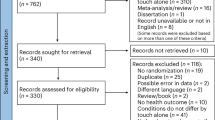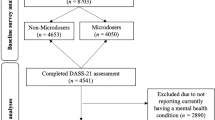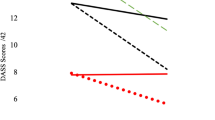Abstract
Objective:
Maintaining weight loss is a major challenge in obesity treatment. Individuals often indicate that waning motivation prompts cessation of effective weight management behaviors. Therefore, a novel weight loss maintenance program that specifically targets motivational factors was evaluated.
Design:
Overweight women (N=338; 19% African American) with urinary incontinence were randomized to lifestyle obesity treatment or control and followed for 18 months. All participants in lifestyle (N=226) received the same initial 6-month group behavioral obesity treatment and were then randomized to (1) a novel motivation-focused maintenance program (N=113) or (2) a standard skill-based maintenance approach (N=113).
Main Outcome Measure:
Weight assessed at baseline, 6 and 18 months.
Results:
Both treatment groups (motivation-focused and skill-based) achieved comparable 18-month weight losses (−5.48% for motivation-focused vs −5.55% in skill-based, P=0.98), and both groups lost significantly more than controls (−1.51%; P=0.0012 in motivation-focused and P=0.0021 in skill-based).
Conclusions:
A motivation-focused maintenance program offers an alternative, effective approach to weight maintenance expanding available evidence-based interventions beyond traditional skill-based programs.
Trial Registration:
clinicaltrials.gov identifier: NCT00091988.
This is a preview of subscription content, access via your institution
Access options
Subscribe to this journal
Receive 12 print issues and online access
$259.00 per year
only $21.58 per issue
Buy this article
- Purchase on Springer Link
- Instant access to full article PDF
Prices may be subject to local taxes which are calculated during checkout

Similar content being viewed by others
References
Jeffery RW, Drewnowski A, Epstein LH, Stunkard A, Wilson GT, Wing RR et al. Long-term maintenance of weight loss: current status. Health Psychol 2000; 19: 5–16.
Wing RR, Gorin AA . Obesity. Oxford Textbook of Primary Medical Care. Oxford University Press: Oxford, 2003.
Wing RR, Papandonatos G, Fava JL, Gorin AA, Phelan S, McCaffery J et al. Maintaining large weight losses: the role of behavioral and psychological factors. J Consult Clin Psychol 2008; 76: 1015–1021.
Wing RR, Phelan S . Long-term weight loss maintenance. Am J Clin Nutr 2005; 82 (suppl): 222S–225S.
Perri MG, Corsica JA . Improving maintenance of weight loss in behavioral treatment of obesity. In: Wadden TA, Stunkard AJ (eds). Handbook of Obesity Treatment. The Guilford Press: New York, 2002, pp 357–379.
Wing RR . Behavioral weight control. In: Wadden TA, Stunkard AJ (eds). Handbook of Obesity Treatment. Guilford Press: New York, 2002, pp 301–316.
Rothman AJ . Toward a theory-based analysis of behavioral maintenance. Health Psychol 2000; 19: 64–69.
Miller WR, Rollnick S . Motivational Interviewing: Preparing People for Change, 2nd edn. Guilford Press: New York, 2002.
Burke BL, Arkowitz H, Dunn C . The efficacy of motivational interviewing and it's applications: what we know so far. In: Miller WR, Rollnick S (eds). Motivational Interviewing: Preparing People to Change, 2nd edn. Guilford Press: New York, 2002, pp 217–250.
West DS, Gore SA, DiLillo V, Greene PG, Bursac Z . Motivational interviewing improves weight loss in women with type 2 diabetes. Diabetes Care 2007; 30: 1081–1087.
Carels RA, Darby L, Cacciapaglia HM, Konrad K, Coit C, Harper J et al. Using motivational interviewing as a supplement to obesity treatment: a stepped-care approach. Health Psychol 2007; 26: 369–374.
Deci E, Ryan R . Intrinsic Motivation and Self-Determination in Human Behavior. Plenum: New York, 1985.
Williams GC, Grow VM, Freedman ZR, Ryan RM, Deci EL . Motivational predictors of weight loss and weight loss maintenance. J Pers Soc Psychol 1996; 70: 115–126.
Silva MN, Vieira PN, Coutinho SR, Minderico CS, Matos MG, Sardinha LB et al. Using self-determination theory to promote physical activity and weight control: a randomized controlled trial in women. J Behav Med 2010; 33: 110–122.
Subak LL, Wing R, West DS, Franklin F, Vittinghoff E, Creasman JM et al. Randomized trial of a behavioral weight loss program for urinary incontinence in overweight and obese women. N Engl J Med 2009; 360: 481–490.
Diabetes Prevention Program Research Group. Achieving weight and activity goals among Diabetes Prevention Program lifestyle participants. Obesity Research 2004; 12: 1426–1435.
Wadden TA, West D, Delahanty L, Jakicic J, Rejeski W, Williamson D et al. The Look AHEAD Study: a description of the lifestyle intervention and the evidence supporting it. Obesity 2006; 14: 737–752.
Wing RR, Tate DF, Gorin AA, Raynor HA, Fava JL . A self-regulation program for maintenance of weight loss. N Engl J Med 2006; 355: 1563–1571.
Crerand C, Wadden T, Foster G, Sarwer D, Paster L, Berkowitz R . Changes in obesity-related attitudes in women seeking weight reduction. Obesity 2007; 15: 740–747.
Jeffery RW, Linde JA, Finch EA, Rothman AJ, King CM . A satisfaction enhancement intervention for long-term weight loss. Obesity 2006; 14: 863–869.
Linde JA, Jeffery RW, Finch EA, Ng DM, Rothman AJ . Are unrealistic weight loss goals associated with outcomes for overweight women? Obesity Research 2004; 12: 569–576.
Finch EA, Linde JA, Jeffery RW, Rothman AJ, King CM, Levy RL . The effects of outcome expectations and satisfaction on weight loss and maintenance: correlational and experimental analyses—a randomized trial. Health Psychol 2005; 24: 608–616.
Smith C, Burke L, Wing R . 6-month outcome of two behavioral weight loss treatments focusing on primary motivations for weight loss. Obesity Research 1999; 7: 19S.
Festinger LA . A Theory of Cognitive Dissonance. Stanford Press: Stanford, 1957.
Wilson DK, Friend R, Teasley N, Green S, Reaves IL, Sica DA . Motivational versus social cognitive interventions for promoting fruit and vegetable intake and physical activity in African American Adolescents. Annals of Behavioral Medicine 2002; 24: 310–319.
Leake R, Friend R, Wadhwa N . Improving adjustment to chronic illness through strategic self-presentation: an experimental study on a renal dialysis unit. Health Psychol 1999; 18: 54–62.
Vansteenkiste M, Sheldon KM . There's nothing more practical than a good theory: interviewing and self-determination theory. Br J Clin Psychol 2006; 45: 63–82.
Silva MN, Markland D, Minderico CS, Vieira PN, Castro MM, Coutinho SR et al. A randomized controlled trial to evaluate self-determination theory for exercise adherence and weight control: rationale and intervention description. BMC Public Health 2008; 8: 234–246.
Hunt GM, Azrin NH . A community reinforcement approach to alcoholism. Behavior Research and Therapy 1973; 11: 91–104.
Lewinsohn P, Libet J . Pleasant events, activity schedules and depressions. J Abnorm Psychol 1972; 79: 291–295.
Stuart RB . Behavioral control of overeating. Behavior Therapy 1967; 5: 357–365.
Levesque CS, Williams GC, Elliot D, Pickering MA, Bodenhamer B, Finley PJ . Validating the theoretical structure of the treatment self-regulation questionnaire (TSRQ) across three different health behaviors. Health Education Research 2007; 22: 691–702.
Resnicow K, Campbell MK, Carr C, McCarty F, Wang T, Periasamy S et al. Body and Soul: a dietary intervention conducted through African-American churches. Am J Prev Med 2004; 27: 97–105.
Anderson DF, Cychosz CM . Development of an exercise identify scale. Percept Mot Skills 1994; 78: 747–751.
Anderson DF, Cychosz CM . Exploration of the relationship between exercise behavior and exercise identity. Journal of Sports Behavior 1995; 21: 233–241.
Cardinal BJ, Cardinal MK . Changes in exercise behavior and exercise identify associated with a 14-week aerobic exercise class. Journal of Sports Behavior 1997; 20: 377–386.
Boutelle KN, Kirschenbaum DS . Further support for consistent self-monitoring as a vital component of successful weight control. Obesity Research 1998; 6: 219–224.
Wadden TA, West DS, Neiberg R, Wing RR, Ryan DH, Johnson KC et al. One-year weight losses in the look AHEAD study: factors associated with success. Obesity 2009; 17: 713–722.
Little RJA, Rubin DB . Statistical Analysis with Missing Data. Wiley: New York, 1987.
West DS, Prewitt TE, Bursac Z, Felix HC . Weight loss of black, white and hispanic men and women in the Diabetes Prevention Program (DPP). Obesity 2008; 16: 1413–1420.
Diabetes Prevention Program Research Group. The Diabetes Prevention Program: baseline characteristics of the randomized cohort. Diabetes Care 2000; 23: 1619–1629.
Diabetes Prevention Program Research Group. Reduction in the incidence of type 2 diabetes with lifestyle intervention or metformin. N Engl J Med 2002; 346: 393–403.
Acknowledgements
This research was supported in part by grants U01DK067860, U01 DK067861 and U01 DK067862 from the National Institute of Diabetes and Digestive and Kidney Diseases. Funding was also provided by the Office of Research on Women's Health. The content is solely the responsibility of the authors and does not necessarily represent the official views of the National Institute of Diabetes and Digestive and Kidney Diseases or the National Institutes of Health. See online Supplementary materials for full author acknowledgements.
Author information
Authors and Affiliations
Consortia
Corresponding author
Ethics declarations
Competing interests
The authors declare no conflict of interest.
Additional information
Supplementary Information accompanies the paper on International Journal of Obesity website
Supplementary information
Rights and permissions
About this article
Cite this article
West, D., Gorin, A., Subak, L. et al. A motivation-focused weight loss maintenance program is an effective alternative to a skill-based approach. Int J Obes 35, 259–269 (2011). https://doi.org/10.1038/ijo.2010.138
Received:
Revised:
Accepted:
Published:
Issue Date:
DOI: https://doi.org/10.1038/ijo.2010.138
Keywords
This article is cited by
-
Motivational Interviewing for Weight Management Among Women: a Meta-Analysis and Systematic Review of RCTs
International Journal of Behavioral Medicine (2021)
-
Functional imagery training versus motivational interviewing for weight loss: a randomised controlled trial of brief individual interventions for overweight and obesity
International Journal of Obesity (2019)
-
Comparison of an alternative schedule of extended care contacts to a self-directed control: a randomized trial of weight loss maintenance
International Journal of Behavioral Nutrition and Physical Activity (2017)
-
Ecological Momentary Assessment of Dietary Lapses Across Behavioral Weight Loss Treatment: Characteristics, Predictors, and Relationships with Weight Change
Annals of Behavioral Medicine (2017)
-
Understanding Weight Regain and the Need for Life-Long Follow-up After Bariatric Surgery
Current Surgery Reports (2017)



